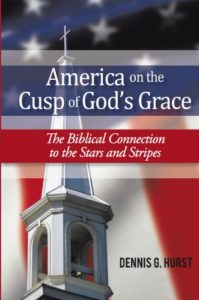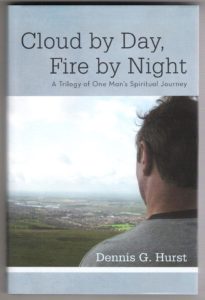Tags
Beyond the Cosmos, Christ, Christianity, Conservatism, Everlasting, Experience, Family, Fellowship of the Minds, Freedom, Genealogy, Gerard Vanderleun, God, Jesus Christ, Lessons, Liberty, Life, Posterity, Self-Preservation, Teaching, United States, William Wordsworth, Wisdom
Share it
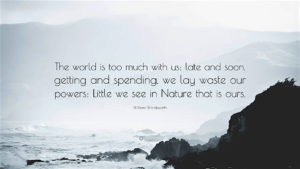
But if our gospel be hid, it is hid to them that are lost: In whom the god of this world hath blinded the minds of them which believe not, lest the light of the glorious gospel of Christ, who is the image of God, should shine unto them. For we preach not ourselves, but Christ Jesus the Lord; and ourselves your servants for Jesus’ sake. For God, who commanded the light to shine out of darkness, hath shined in our hearts, to give the light of the knowledge of the glory of God in the face of Jesus Christ. ~ 2 Corinthians 4: 3-6
One of my favorite, favorite, poets, William Wordsworth gloried in nature, and in The World Is Too Much With Us he reflects how often we are tone deaf to its music.
Born in the village of Cockermouth in the middle of the English Lake District, he was the son of an attorney, educated at Hawkshead grammar school and at St. John’s College, Cambridge. Sadly, both of his parents died by the time he was thirteen and consequently he was brought up by relatives.
He spent some time in France shortly after the French Revolution (whose cause he espoused) and in 1797 moved to Somerset with his favorite sister, Dorothy, where he developed a close association with Samuel Taylor Coleridge.
Generally considered the greatest of the Romantic poets, Wordsworth’s most creative poetry is his early work with its main themes of the English countryside and the revolutionary spirit of the age. Of his later work The Prelude, published posthumously (see link below), is the most significant. He became Poet Laureate in 1843.
This is the sonnet as referenced above through which Wordsworth criticizes the world of the First Industrial Revolution for being absorbed in materialism and distancing itself from nature. Composed circa 1802, the poem was first published in Poems in Two Volumes (1807).
The World Is Too Much With Us
The world is too much with us; late and soon,
Getting and spending, we lay waste our powers:
Little we see in Nature that is ours;
We have given our hearts away, a sordid boon!
This Sea that bares her bosom to the moon;
The winds that will be howling at all hours,
And are up-gathered now like sleeping flowers;
For this, for everything, we are out of tune,
It moves us not – Great God! I’d rather be
A Pagan suckled in a creed outworn;
So might I, standing on this pleasant lea,
Have glimpses that would make me less forlorn;
Have sight of Proteus rising from the sea;
Or hear old Triton blow his wreathèd horn.
~ William Wordsworth
********************
Switching gears slightly, “In the House of Stone and Light” is a song by British musician Martin Page, released in July 1994 from the album of the same name. The mountain in the intro of the song is Mt. Kailas, located near the land of Shambhala, while the present Mt. Kailash in Tibet is linked with the history of the Ramayana.
The song title also refers to the Havasupai name of the Grand Canyon, “the house of stone and light”, both in the lyrics and the title; the Grand Canyon is where the Havasupai tribe considers its tribal land to be and is sacred to the tribe.
“O the depth of the riches both of the wisdom and knowledge of God! how unsearchable are his judgments, and his ways past finding out!” ~ Romans 11: 33
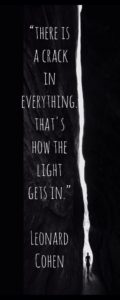
O Mount Kailas, uncover me; come my restoration, wash my body clean; I’ve been walking along a crooked path where the walls have fallen and broken me in half..
I’m telling you, I will not rest till I lay down my head; I’m gonna go in the house of stone and light; I shall not cry for the blind man I leave behind when I go in the house of stone and light, in the house of stone and light..
Holy Lady, show me my soul; tell me of that place where I must surely go; Old man waiting at the gates for me, give me the wisdom, give me the key..
I’m telling you, I will not rest till I lay down my head, in the house of stone and light; I’ll make my way, O gonna be such a beautiful day in the house of stone and light; In the house of stone and light….
********************
Jesus answered them, Do ye now believe? Behold, the hour cometh, yea, is now come, that ye shall be scattered, every man to his own, and shall leave me alone: and yet I am not alone, because the Father is with me. These things I have spoken unto you, that in me ye might have peace. In the world ye shall have tribulation: but be of good cheer; I have overcome the world. ~ John 16: 31-33
********************
See also The Prelude
H/T Gerard Vanderleun and his wonderful American Digest
********************
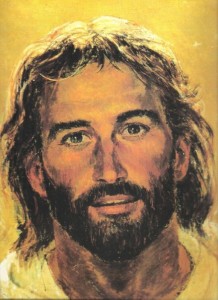
Soli Deo Gloria!

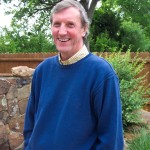 Link To DennisGHurst.com
Link To DennisGHurst.com